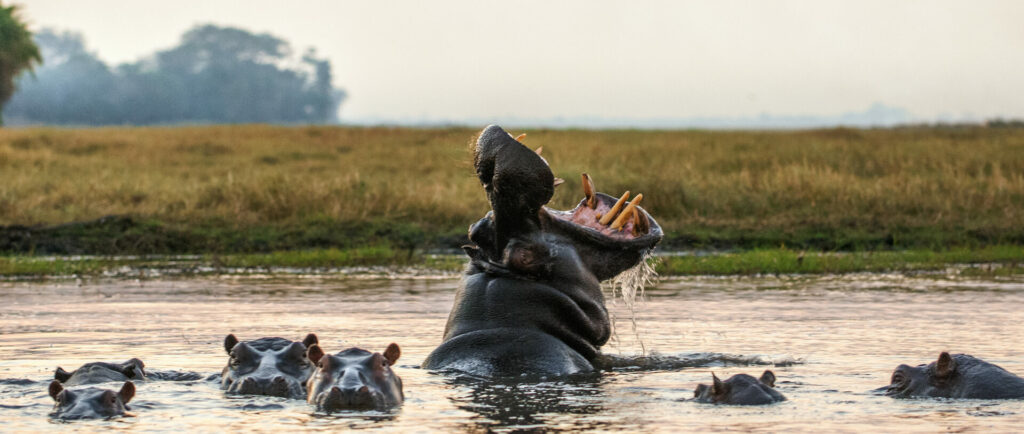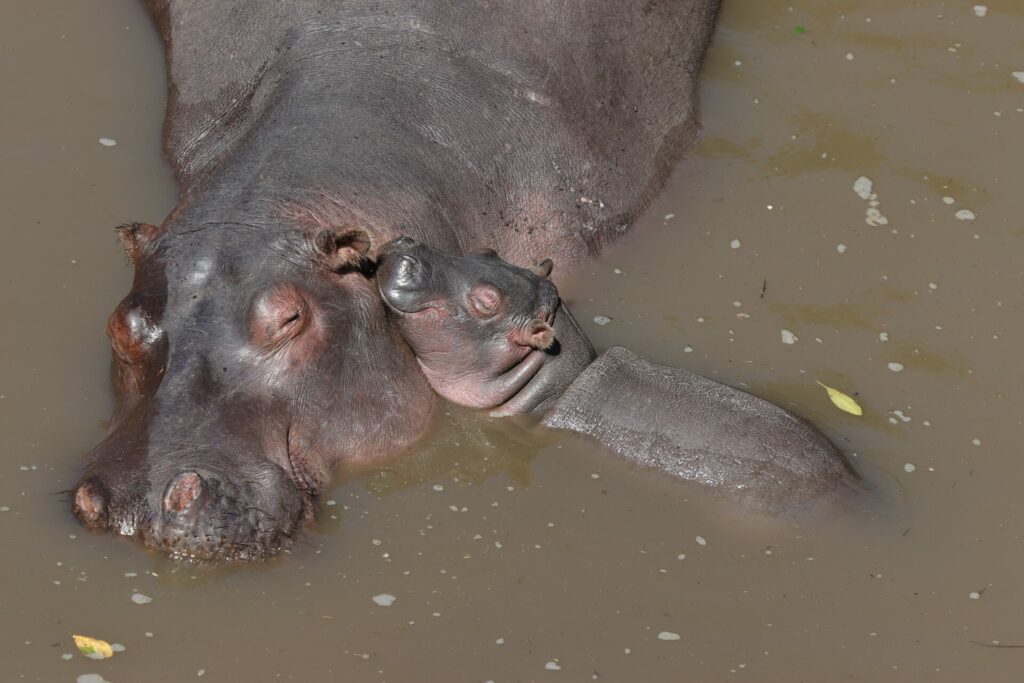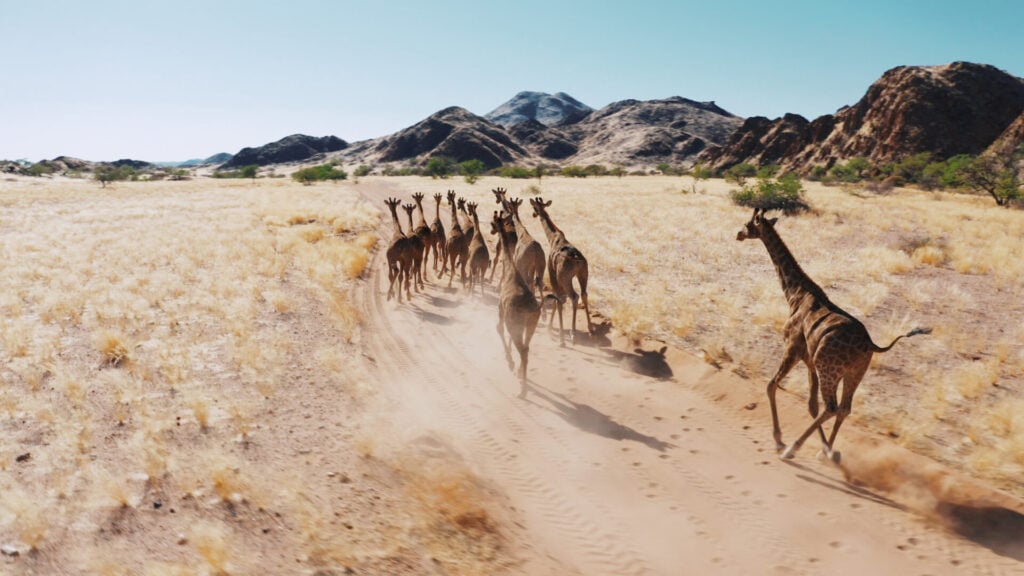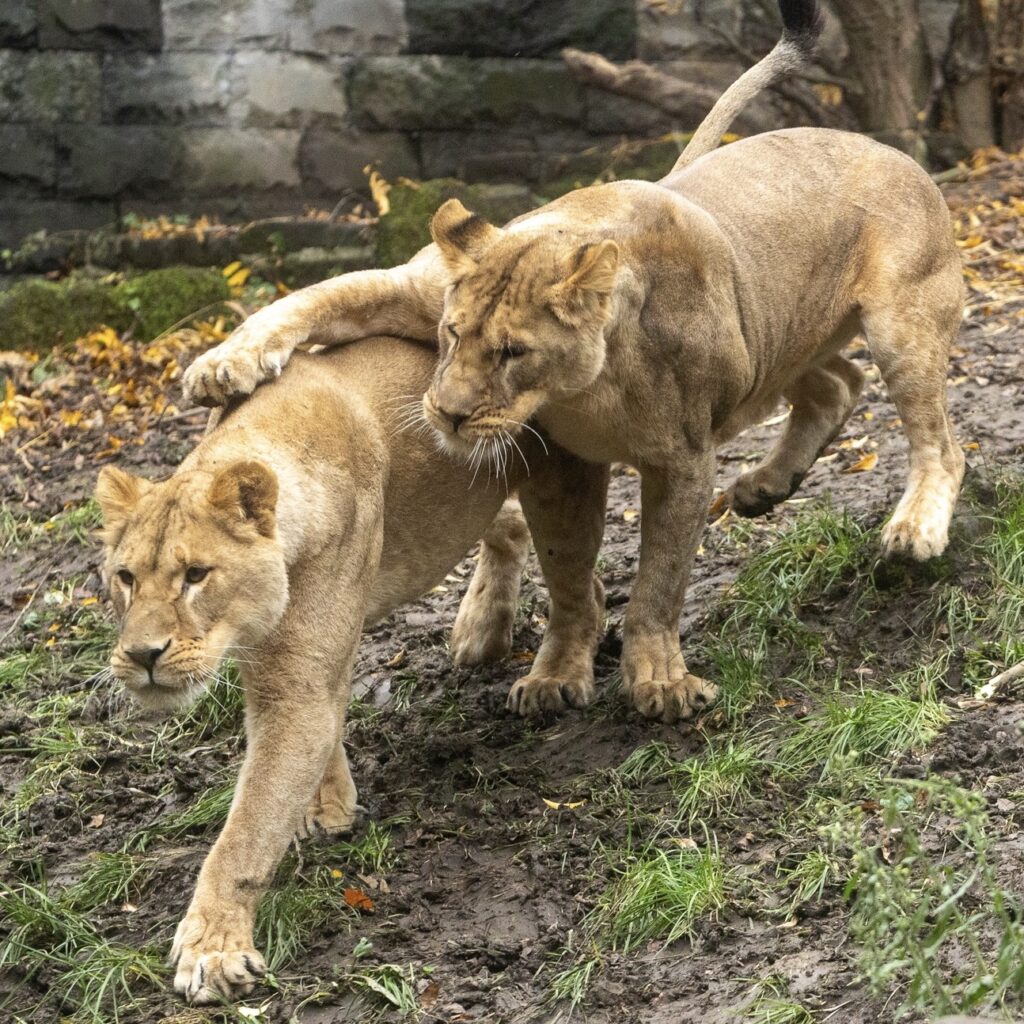A total of 10 west African nations are calling for hippos to be added to the list of the world’s most endangered animals.
The species – which is currently classified as vulnerable by the International Union for the Conservation of Nature (IUCN) – is found in lakes and rivers across sub-Saharan Africa, with an estimated population of up to 130,000.
But numbers are falling due to unregulated hunting for their meat, skin, and ivory – extracted from their large tusks and canine and incisor teeth – combined with shrinking habitats and increased hippo-human conflict.
Habitat loss and the effects of global warming, including drying up of lakes and rivers, also pose significant threats to these semi-aquatic mammals.
They also fall victim to wildlife trophy collectors, who pay up to £10,000 (AED45,000) to legally shoot a hippo. This activity remains legal in seven African countries, namely, Benin, Cameroon, Tanzania, Mozambique, Zimbabwe and South Africa, where the ‘sport’ is endorsed.
Hippo ivory is regarded as a more affordable alternative to elephant ivory due to limited international trading bans. It is estimated that at least 77,579 hippo parts and products were legally traded from 2009 to 2018.

Rebecca Lewison, co-chair of the International Union for Conservation of Nature (IUCN) hippo specialist group, said the threat to the species had been overlooked due to their high population densities, which can give the impression that there are plenty of them in the wild
‘The biggest threat to hippos is habitat loss and degradation. Common hippos rely on fresh water to survive, and that often puts them in conflict with local communities who also need fresh water for agriculture, energy, fishing and residential development,’ she said.
‘Hippo-human conflicts are on the rise, particularly in west Africa, where common hippo populations are declining rapidly. Hippo-human conflicts unfortunately result in both hippo and human fatalities and have contributed to a related problem of unregulated hunting for hippo meat and ivory, which is found in their canine teeth.’
Over the last decade, the United States imported a greater amount than any other country, including more than 9,000 teeth, 5,700 skin pieces, 4,400 small leather products, 2,000 trophies and 1,700 carvings made from teeth. This represents a combined minimum of 3,081 hippos killed.
Saving the Species
But ahead of this November’s Cites Summit (The Convention on International Trade in Endangered Species of Wild Fauna and Flora) in Panama, countries including Guinea, Togo, Liberia, Gabon and Mali, have proposed that hippos be given the highest protection by listing them under Appendix I of the convention, reserved for species threatened with extinction.
They are currently listed as an Appendix II species which means they are not threatened with extinction yet but may become so if their trade remains unregulated.
If approved, the upgrade would mean a total international ban on the trade in hippo body parts and ivory affecting all 38 countries where they are still found in the wild.
Following the proposal, the Cites secretariat will now provide an assessment to see whether hippos meet the Appendix I criteria, in advance of the Panama meeting.

Keenan Stears, a University of California Santa Barbara ecologist, based part of the year in Kruger National Park, South Africa, said he supported the proposal.
‘A large proportion of hippos are in rivers that are experiencing significant reductions in river flow. Threats like habitat destruction for agriculture are a huge issue,’ he said.
‘They can recover pretty quickly with enough vegetation. Any kind of protected area would be perfectly fine for the population to increase rapidly.’
The proposals are unlikely to affect a small population of hippos found in Colombia, which has grown from the private collection of deceased drug warlord Pablo Escobar. Their population has reached 130 and is projected hit 400 in eight years as they flourish in Colombia’s rivers.









